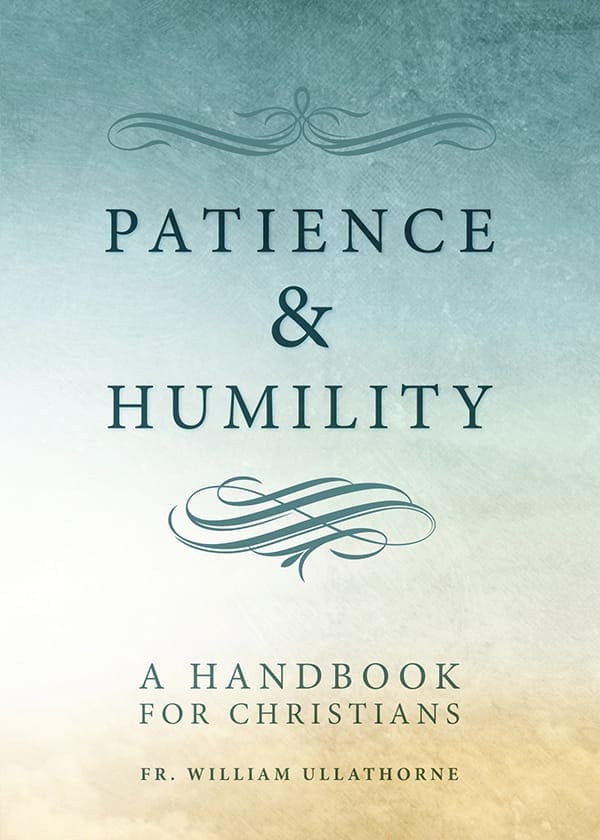If the virtue of humility is often understood when directly exercised toward God, the same virtue is liable to still greater misconception when exercised toward our neighbor. There are two things to be considered in every man, and these two things have to be well and carefully distinguished from each other: what man is of himself, and what he is by the super-added gifts of God. Every man should subject what is purely his own to what is of God, whether that which is of God is in himself or in another.
This is the principle of humility in its exercise toward our neighbor; it is not a reverence given to human nature, but to the gifts of God within that nature.
But the same humility forbids the unreasonableness of judging another man’s soul. We can act only on what we know, and we always know much more than our own internal weakness and defects than we can know in the case of another person.
Few persons, perhaps, reflect on the beauty of the reward we receive for humility to our neighbor. This humility opens to the soul to all the good that God has planted in other souls.
Those are the happy sunshiny souls that are open to see all the good influences of God around them, and that receive into themselves the reflection of the divine good which God has given to other souls. This is one of the great privileges of a truly religious society where humility and charity are the dominant virtues: each soul is always receiving a beautiful and powerful influence from all the rest of the community.
The very spectacle gives a light to the words of our Lord, that “where two or three are gathered together in my name, there I am in the midst of them.”
It is the will of men acting apart from God, and preferring in their pride to see the evil rather than the good in their fellow men, that so bitterly entangles this world of human nature. It is the myriads of self-wills, each impelled by its own self-love, that produce the knots, the travels, and the interminable complications that make this world such a wearying perplexity to those thoughtful minds devoid of the wisdom that descends from God. Even David was perplexed in his musings on these things until he remembered the judgement of God.
The tragedy of human life is not the strife of free will with fate that the ignorant pagans imagine, but the collision of pride with the providence of humiliation; of self-will destined always to defeat, against the will of God.
There is such an enormous distance between what we are by nature and what God would have us be by his grace, so that we may pass from misery to happiness; and the obstacles within us that hold us back or throw us the other way are of such a kind – tending to seek false instead of true greatness, in the exaltation of ourselves, and not in ascending to things greater than ourselves – that this alone shows us what a great part humility must take in replacing us on the path that leads us to God.
Although the light that descends to us from God is the chief principle of self-knowledge, the watching of our conduct toward our neighbors also helps us very much to know ourselves.
+
This article is adapted from a chapter in Patience & Humility by Fr. William Ullathorne, which is available from Sophia Institute Press.
Art for this post on seeking the good in others: Cover and featured image used with permission.





